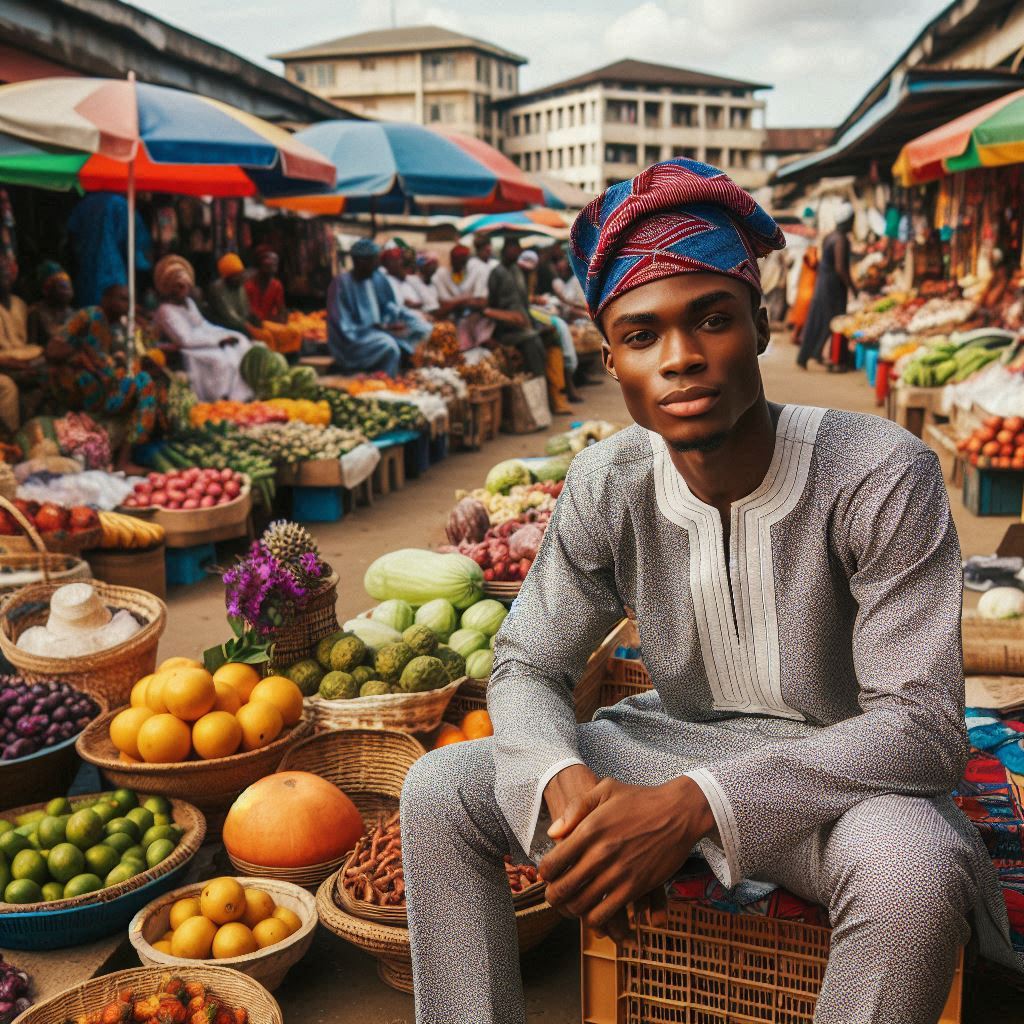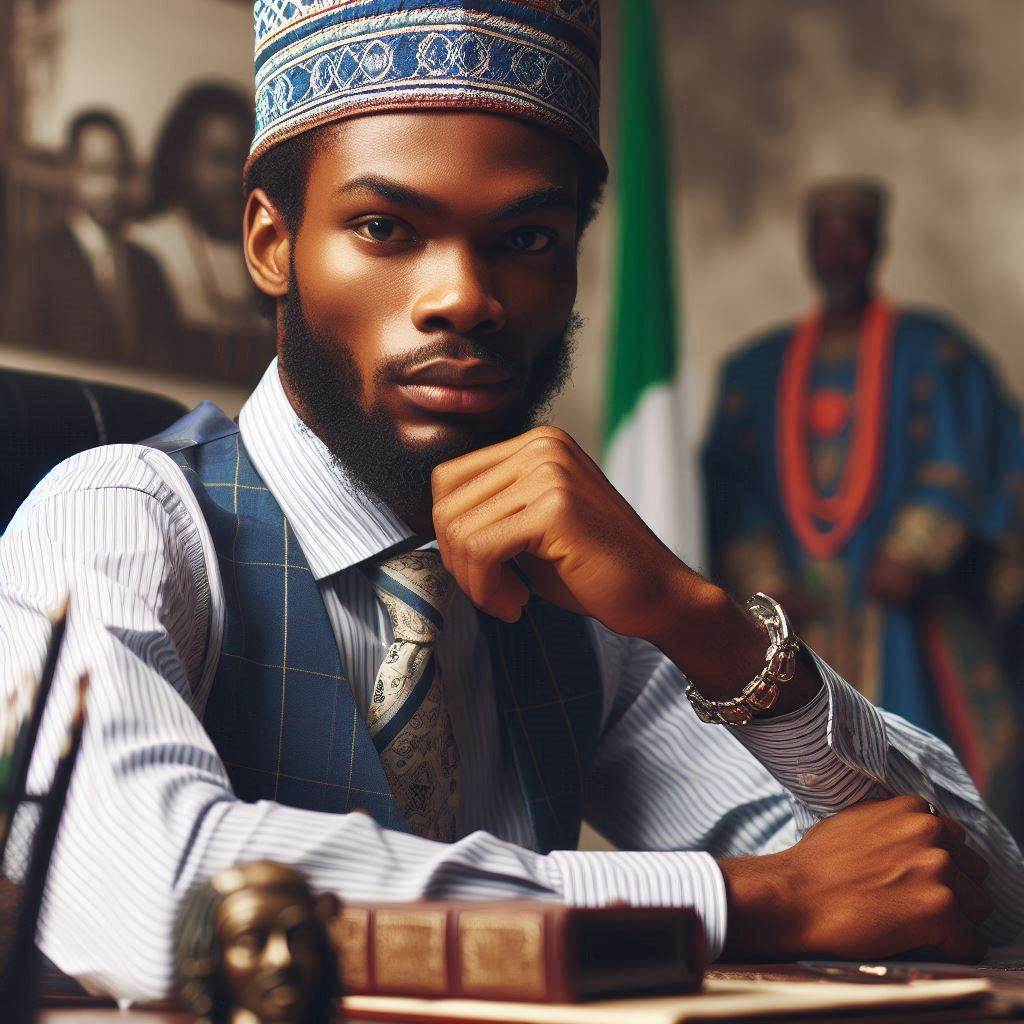Introduction
Nigeria, a nation renowned for its cultural diversity, is home to a plethora of languages, each carrying its unique charm and significance.
These languages serve as vibrant expressions of Nigeria’s rich heritage, reflecting centuries of history, tradition, and societal evolution.
Language holds a profound importance in Nigerian culture, acting as a conduit for communication, preservation of traditions, and intergenerational exchange of knowledge.
It is through language that stories are told, songs are sung, and rituals are performed, weaving a rich tapestry of cultural identity that binds communities together.
In this blog post, we embark on a fascinating journey to explore the diverse linguistic landscape of Nigeria.
From the Hausa language of the North to the Yoruba language of the Southwest, and the Igbo language of the Southeast, we will delve into the nuances, intricacies, and beauty of Nigerian languages, celebrating their role in shaping the country’s cultural mosaic.
Overview of Nigerian languages
Nigeria boasts a linguistic landscape as varied and vibrant as its cultural tapestry.
With over 500 languages spoken across its expanse, Nigeria stands as a testament to linguistic diversity.
These languages are classified into several major language families, each contributing to the country’s rich linguistic heritage.
Mention of Over 500 Languages Spoken in Nigeria
Estimates suggest Nigeria’s borders host over 500 languages, forming a staggering array within its borders.
This linguistic abundance underscores the country’s status as one of the most linguistically diverse nations globally.
Classification into Major Language Families
Major language families include Niger-Congo, Afro-Asiatic, and Nilo-Saharan, categorizing languages.
The Niger-Congo family, the largest, spans languages like Yoruba, Igbo, and Hausa, widely spoken in Nigeria’s West Africa.
Diversity of Languages Across Different Regions
Languages across Nigeria’s regions highlight its linguistic diversity, distributed uniquely in each region.
Firstly the North, Hausa is predominant, serving as a lingua franca for trade and communication.
In the Southwest, Yoruba holds sway, while Igbo is prevalent in the Southeast.
In addition to these major languages, numerous minority languages are spoken in various regions, each contributing to the cultural mosaic of Nigeria.
These include languages such as Fulfulde, Kanuri, Tiv, Efik, and Ibibio, among others.
The diversity of languages across Nigeria reflects the country’s rich historical and cultural heritage.
Each language carries within it a wealth of traditions, folklore, and identity, passed down through generations.
The classification of languages into major language families provides insights into the historical migrations and interactions that have shaped Nigeria’s linguistic landscape.
It underscores the interconnectedness of communities across linguistic boundaries and highlights the dynamic nature of language evolution.
Moreover, the distribution of languages across different regions speaks to the geographical and cultural diversity of Nigeria.
It reflects the unique histories and experiences of various ethnic groups and communities, contributing to the tapestry of Nigerian identity.
Therefore, the linguistic diversity of Nigeria is a source of pride and richness, reflecting the country’s multicultural fabric.
By embracing and celebrating this diversity, Nigeria honors its heritage and strengthens the bonds that unite its people across linguistic and cultural lines.
Historical background of Nigerian languages
The history of Nigerian languages dates back to ancient times, with over 500 languages spoken
- Indigenous languages have evolved over centuries, influenced by diverse cultures and traditions.
- Each ethnic group in Nigeria has its own unique language, reflecting the country’s cultural diversity.
- Language has played a vital role in shaping Nigerian identity and fostering a sense of community.
Influence of colonization on Nigerian languages
- During the colonial era, European languages such as English and French were introduced to Nigeria.
- Colonization led to a decline in the use of indigenous languages, as the colonizers imposed their language.
- The government actively supports teaching and preserving indigenous languages through implemented policies.
- Colonization had a lasting impact on Nigerian languages, affecting language diversity and preservation efforts.
Preservation efforts of indigenous languages
- In recent years, there has been a renewed focus on preserving and promoting indigenous languages in Nigeria.
- The government actively implements policies supporting teaching and preserving indigenous languages.
- Community-driven initiatives, such as language schools and cultural festivals, have also contributed to language preservation.
- Efforts to document and revitalize endangered languages ensure their survival for future generations.
Impact of globalization on language diversity
- Globalization has both positive and negative effects on language diversity in Nigeria.
- On one hand, globalization has led to the spread of dominant languages such as English, reducing the use of indigenous languages.
- However, globalization has also created opportunities for the exchange of languages and cultures, promoting linguistic diversity.
- Nigerians are increasingly embracing multilingualism, incorporating elements of different languages into their daily conversations.
Read: Sociology Departments in Nigerian Universities
Major Nigerian languages
There are several major languages spoken in Nigeria, each with its own unique characteristics and importance in Nigerian society.
Examples of widely spoken languages
- Yoruba
- Hausa
- Igbo
Nigerian communities value these languages for their wide usage and rich cultural and historical significance.
Importance of these languages in Nigerian society
The major Nigerian languages play a crucial role in communication, identity, and cultural preservation within the diverse communities of Nigeria.
Schools teach them, governments use them for communication, and they unify the country’s various ethnic groups.
Contribution of major languages to Nigerian cultural identity
Each major Nigerian language contributes to the rich tapestry of Nigerian culture, providing a unique linguistic and artistic expression for its speakers.
These languages often feature traditions, music, dance, and storytelling. Generations have passed these down.
By preserving and celebrating these languages, Nigerians are able to maintain a strong sense of cultural identity and heritage.
Read: Career Opportunities for Sociology Graduates in Nigeria
Lesser-known Nigerian languages
Nigeria boasts major languages like Hausa, Yoruba, and Igbo. People also speak many lesser-known languages and dialects nationwide.
These languages, although not as widely spoken, are an essential part of Nigeria’s linguistic diversity.
Highlighting lesser-known languages and dialects
- Tiv: The Tiv language is spoken by the Tiv people in Benue and Taraba states. It is a Niger-Congo language with over three million speakers.
- Kanuri: Kanuri is spoken by the Kanuri people in Borno State and parts of Niger, Chad, and Cameroon. It belongs to the Nilo-Saharan language family.
- Nupe: The Nupe language is spoken by the Nupe people in Niger and Kogi states. It is a Benue-Congo language with over one million speakers.
- Ebira: Ebira is spoken by the Ebira people in Kogi State. It is a Niger-Congo language with over one million speakers.
- Ijaw: The Ijaw language is spoken by the Ijaw people in Bayelsa, Delta, and Rivers states. It belongs to the Ijoid branch of the Niger-Congo language family.
Preservation challenges faced by minority languages
Minority languages in Nigeria face numerous challenges that threaten their survival and continuity.
These challenges include:
- Language shift: Due to urbanization and the influence of dominant languages, many minority languages are facing a decline in speakers.
- Lack of institutional support: Minority languages often lack government recognition and support for language preservation efforts.
- Displacement of communities: Displacement sometimes uproots indigenous communities speaking minority languages. This leads to the loss of their language and cultural heritage.
- Globalization: The dominance of global languages like English and French can marginalize minority languages and dialects.
Efforts to document and revitalize endangered languages
Despite these challenges, there are ongoing efforts to document and revitalize endangered languages in Nigeria.
Some of these efforts include:
- Language shift: Due to urbanization and the influence of dominant languages, many minority languages are facing a decline in speakers.
- Lack of institutional support: Minority languages often lack government recognition and support for language preservation efforts.
- Displacement of communities: Indigenous communities that speak minority languages are sometimes displaced, leading to the loss of language and cultural heritage.
- Globalization: The dominance of global languages like English and French can marginalize minority languages and dialects.
By recognizing, preserving, and revitalizing lesser-known Nigerian languages, we can ensure that Nigeria’s linguistic heritage remains vibrant and diverse for generations to come.
Read: Challenges Facing Sociology Education in Nigeria

Delve into the Subject: Funding Challenges in Nigerian Arts
Delve into the Subject: Comparing English Language and Communication Degrees
Language diversity in Nigerian communities
Nigeria boasts a diverse linguistic landscape with over 500 languages spoken. It ranks among the world’s most linguistically diverse countries.
Linguistic diversity within Nigerian ethnic groups
Each ethnic group in Nigeria is associated with a specific language or a group of related languages.
The Hausa, Yoruba, and Igbo ethnic groups in Nigeria speak distinct languages. Millions of people use these languages.
These languages not only serve as a means of communication but also play a crucial role in preserving the cultural heritage and identity of each ethnic group.
They form an integral part of the community’s identity. Each generation passes them down to the next.
Role of language in shaping cultural practices and traditions
Language is not just a tool for communication in Nigerian communities; it also plays a significant role in shaping cultural practices and traditions.
Each language carries with it a wealth of cultural knowledge, history, and traditions that are unique to that particular ethnic group.
For example, the Yoruba language is closely tied to the rich cultural heritage of the Yoruba people, including their art, music, dance, and religious beliefs.
Similarly, the Igbo language is a vital part of Igbo cultural practices and rituals.
Language is often used as a medium to express cultural values, beliefs, and norms.
It helps to reinforce social cohesion and unity within the community by providing a common linguistic bond that connects individuals to their shared heritage.
Importance of multilingualism in Nigerian society
Given the incredible linguistic diversity in Nigeria, multilingualism is a common phenomenon in Nigerian society.
Many Nigerians are fluent in multiple languages, often switching between them depending on the context or the interlocutors they are interacting with.
Multilingualism is not only a practical necessity in a country with such diverse language groups but also a sign of the openness and adaptability of Nigerian people.
It allows individuals to engage with different ethnic groups, foster cross-cultural understanding, and build relationships across linguistic boundaries.
Moreover, multilingualism is a valuable skill that can provide individuals with a competitive edge in various fields, such as business, education, and diplomacy.
It enables them to communicate effectively with a wider range of people and expand their opportunities for personal and professional growth.
Read: The Role of Sociology in Nigerian Social Policy
Uncover the Details: Networking Tips for African and Asian Studies Students
Significance of Nigerian languages
The indigenous languages of Nigeria hold immense cultural value, serving as repositories of ancestral knowledge and traditions.
These languages are deeply intertwined with the identity of Nigeria’s diverse ethnic groups, forming the bedrock of their cultural heritage.
Cultural Value of Indigenous Languages
Indigenous languages are not merely tools of communication; they encapsulate the essence of Nigeria’s cultural diversity.
Through language, stories are passed down, rituals are performed, and values are transmitted from one generation to the next.
Connection Between Language and Identity
Language plays a pivotal role in shaping individual and collective identities. For many Nigerians, their native language is an integral part of their sense of self and community.
It serves as a marker of belonging, fostering a sense of pride in one’s cultural heritage.
Transform Your Career with Expert Guidance
Get personalized mentorship consulting that’s tailored to your unique path. Our expert advice is actionable and exclusive.
Get StartedImpact of Language Diversity on National Unity
The linguistic diversity of Nigeria presents both challenges and opportunities for national unity.
While it reflects the country’s rich tapestry of cultures, it also poses challenges in terms of communication and governance.
However, embracing this diversity can be a catalyst for unity, as it allows for the recognition and celebration of Nigeria’s multicultural heritage.
By promoting linguistic diversity and preserving indigenous languages, Nigeria can foster a sense of inclusivity and belonging among its diverse population.
Language policies that promote multilingualism and support the teaching and preservation of indigenous languages can contribute to building a more cohesive and harmonious society.
Generally, the indigenous languages of Nigeria are invaluable assets that contribute to the country’s cultural richness and diversity.
Recognizing the cultural value of these languages, fostering their connection to identity, and leveraging language diversity to promote national unity are essential steps towards building a stronger, more inclusive Nigeria.
Explore Further: Curriculum for Criminology Studies in Nigeria
Gain More Insights: Role of Anthropology in Nigerian Archaeological Discoveries
Conclusion
In this exploration of Nigerian languages, we have uncovered a kaleidoscope of linguistic diversity and cultural richness.
With over 500 languages spoken across the country, Nigeria stands as a testament to the intricacies of human expression and identity.
Throughout this blog post, we have delved into the classification of Nigerian languages into major language families, highlighting the complex tapestry of linguistic evolution that has shaped the nation’s cultural landscape.
From the Niger-Congo to Afro-Asiatic and Nilo-Saharan families, each language family tells a story of migration, interaction, and adaptation.
Moreover, we have emphasized the profound cultural value of indigenous languages and their deep connection to identity.
Nigerian languages are not mere communication tools; they are living repositories of tradition, history, and heritage.
As we conclude, let us reaffirm our commitment to promoting and preserving Nigerian language heritage.
By embracing the linguistic diversity that defines us, we honor the rich tapestry of our collective identity.
Let us advocate for policies and initiatives that support the teaching, preservation, and celebration of Nigerian languages, ensuring that they continue to thrive as vital components of our cultural heritage for generations to come.




